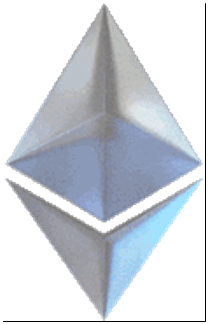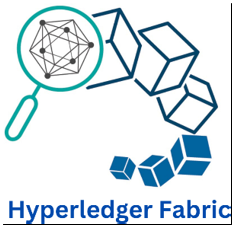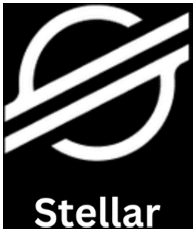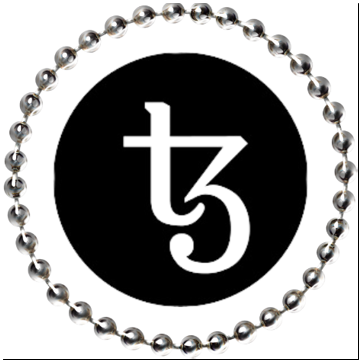Blockchain Platforms
Blockchain is rapidly gaining importance in today’s world. While it initially emerged as the technology behind Bitcoin in 2009, it has since grown into something much bigger. Nowadays, blockchain is about more than just digital currencies; it’s being applied in various areas, such as managing supply chains, optimizing logistics, advancing healthcare technology, and enhancing industry operations. Its core purpose is to create transparent and efficient business processes. Experts are anticipating big things for blockchain, they predict that by 2025, the blockchain market could be worth an astounding $39.7 billion. This incredible growth is driven by the increasing demand for blockchain systems, showcasing the technology’s transformative impact across a wide range of industries. Blockchain has evolved far beyond its cryptocurrency origins and is reshaping the way we do business and technology.
The worldwide blockchain industry is expected to increase at an amazing compound annual growth rate (CAGR) of around 85.9% from 2022 to 2030, reaching a whopping $1,431.54 billion. We’ll expose you to the blockchain platforms in this writing as we continue to highlight the ongoing blockchain revolution. For everyone interested in the world of blockchain, these platforms are vital information, regardless of experience level with the technology.
What are the blockchain platform?
Blockchain-based platforms are gaining popularity as a means for improving supply chains, increase traceability, simplify commerce, and boost financial transactions. Much of this interest comes from the speculative frenzy within Bitcoin, which is built on a prior blockchain platform that suffers power consumption and speed challenges. Blockchain platform have been developed to address all challenges of blockchain and provide tangible benefits for various business applications and objectives.
Our writing will introduce you to some of the prominent players in the blockchain platform segment and offer a quick look at their fundamental features. It’s important to remember that the order in which these blockchain platform companies are presented doesn’t imply their popularity or ranking. You have the flexibility to select the blockchain technology that aligns best with your business requirements, as each option listed here excels in its own distinctive manner. Let’s look at the latest blockchain platforms.
1. Ethereum

It introduced in 2013, is a decentralized blockchain platform similar to Bitcoin, but it goes beyond just digital currency. Ethereum is like a super-smart blockchain that can run computer programs called “smart contracts.” These contracts are written in a language called Solidity, making Ethereum a versatile tool for developers. However, Ethereum isn’t the fastest or the cheapest option for handling transactions. Nevertheless, it boasts a lively community of developers, with backing from major players such as Intel, JPMorgan, and Microsoft.
One exciting development with Ethereum is its move towards an eco-friendlier transaction confirmation process, significantly reducing energy consumption. Ethereum is also working on Proto-Danksharding, an upgraded approach at supercharging its transaction processing capabilities, potentially supporting up to 100,000 transactions per second. Ethereum employs a Proof-of-Work (PoW) mechanism and currently holds the second-largest market capitalization in the global cryptocurrency market. It has gained significant popularity among NFT traders and is a pivotal player in shaping the future of the Metaverse.
2. IBM
For risk-averse enterprise clients, there’s a specialized blockchain solution known as IBM Blockchain. It excels in integrating with existing enterprise cloud systems and legacy technologies. IBM offers flexible and customizable developer tools, simplifying tasks such as smart contract setup and deployment. IBM Blockchain Transparent Supply enhances traceability in supply chain management, providing support for quality assurance, predictive analysis, dispute resolution, product recalls, and secure document sharing. IBM provides adaptable, secure, and fast blockchain platforms with enterprise-level services, enabling smart contracts in industries such as finance, healthcare, and food.
3. Hyperledger Fabric

The high modularity, making it possible to smooth integrate and customize components, services, and consensus mechanisms to suit specific enterprise needs. Hyperledger Fabric is a robust tool created under the Linux Foundation’s guidance, designed for enterprise-grade distributed ledgers. It empowers both closed and open smart contract models, ensuring a balance of security and speed. Data privacy is a priority, achieved by transaction isolation and the capability to share private data securely. Leading cloud providers, including Amazon Web Services, IBM, Google, Microsoft Azure, and Oracle, support Hyperledger Fabric. The community is continuously enhancing it, focusing on aspects like consensus algorithms, GDPR compliance, and operational enhancements.
4. Stellar

Stellar is making the world smaller and more convenient for everyone. Its decentralized and open database infrastructure has transformed cross-border payments, making them exceptionally fast and straightforward. Consequently, an increasing number of businesses engaged in international trade are embracing this digital currency-powered payment protocol. Stellar’s technology minimizes the requirement for manual reviews and third-party authorizations. Many banks are integrating Stellar into their financial operations.
5. Tezos

In the second quarter of 2023, Tezos saw a significant decrease in revenue, dropping from $472,300 in April to $22,200 by June. However, during the same period, the total value locked in Tezos increased substantially, rising from $50.49 million to $87.97 million. While the average daily active users slightly decreased from 291,260 to 306,620, the average market capitalization of Tezos also experienced a decline, falling from $1.31 billion to $1.03 billion (Henn, 2023). These metrics reflect the dynamic nature of the cryptocurrency and blockchain market.
Tezos stands as an open-source blockchain designed for peer-to-peer transactions and smart contract deployment. Its native coin is known as “Tez”. Unlike some other blockchains, Tezos reaches consensus through a process called proof-of-stake, which is more energy-efficient. This blockchain is recognized for its scalability and strong security record. Importantly, it can smoothly integrate upgrades without causing disruptions to its operation.
Please Pick the Right Blockchain Platform
The blockchain industry is booming, set to reach a whopping $67.4 billion by 2026. This growth is a testament to the ever-expanding uses of blockchain technology. However, with so many blockchain platforms available, businesses must choose wisely.
Choosing the right blockchain platform is a critical decision for any business. It’s essential to make an informed choice that aligns with your business goals and specific needs. A well-suited platform ensures the effectiveness and security of your blockchain application and supports your long-term objectives. By carefully considering factors such as use case, scalability, consensus mechanism, security, community support, interoperability, cost, upgradeability, regulatory compliance, and performance, businesses can navigate the complexities of the blockchain space and harness the full potential of this transformative technology. In a rapidly evolving blockchain industry, staying informed and making strategic decisions is key to success.
